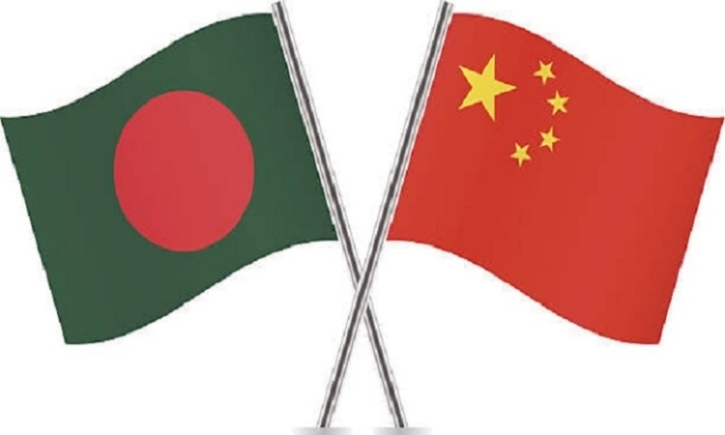Is China’s role in development cooperation decreasing?
Ismail Ali || BusinessInsider

Representational photo
Analyses are now going on in various quarters across the country regarding the outcomes of Prime Minister Sheikh Hasina’s much-discussed visit to China.
Before the visit, many Bangladeshi officials expected that the visit would be of great significance but reports indicated that Bangladesh might receive development cooperation and loans amounting to five billion dollars.
However, China has only pledged one billion yuan in aid, leading to disappointment in various quarters within the government.
According to sources, China has not provided any major financial assistance or loans to Bangladesh in the past few years.
In the last 12 years, the country has contracted a debt of only one hundred and seven billion dollars but the disbursement is more than half.
In the past, China gave Bangladesh only 114.60 crore yuan or about Tk 1,800 crore.
Besides, Bangladesh was promised a loan of $24 billion in 2016, but only $5.5 billion was received from it so far.
Before Sheikh Hasina’s visit to Beijing, it was anticipated that several key issues could be discussed with China from Bangladesh's side.
It was hoped that China might play a role not only in negotiations but also in addressing Dhaka’s expectations on various matters.
These issues include the Teesta project, Rohingya repatriation, trade, investment, and China's potential assistance in resolving the economic crisis through debt relief.
Although the joint statement published by the two countries at the end of the visit does not mention the Teesta Master Plan, there are no significant promises from China regarding trade, investment, or infrastructure development in Bangladesh.
In this context, many people are trying to compare the achievements with the expectations of Bangladesh.
According to the Economic Relations Department (ERD), the loan agreement with China was $7.253 billion over the past 12 and a half years, mostly in the Chinese currency, Yuan.
The last loan agreement was in March 2023 for the Rajshahi Wasa water treatment plant construction project.
China’s loan disbursement amounted to $3.86 billion in nearly 12 and a half years until last May. Of this, only $361 million was disbursed in the 11 months leading up to May of the last financial year.
Additionally, in the 2022-23 fiscal year, China's loan waiver was $221 million.
There have been three summits between Bangladesh and China in the last decade. Prime Minister Sheikh Hasina visited China in 2014 and 2019, while Chinese President Xi Jinping visited Dhaka in 2016.
During Xi Jinping’s 22-hour Bangladesh visit in October 2016, the two countries signed 27 agreements and memorandums of understanding (MoUs).
Under these agreements, China pledged $24 billion in loans for 34 projects, most of which were intended for infrastructure development.
However, Bangladesh has received less than a quarter of the promised loan amount over the past eight and a quarter years. During this period, loan agreements were signed for a total of $5.61 billion.
Additionally, several major projects, such as the Dhaka-Sylhet four-lane highway, the Dhaka-Chattogram high-speed railway line, the Dhaka-Chattogram expressway, the Joydevpur-Ishwardi double line railway, the Akhaura-Sylhet double line railway, and the Joydevpur-Mymensingh double line railway, had progressed in terms of borrowing processes but were ultimately canceled due to various reasons.
During the Prime Minister's visit, Bangladesh sought a loan of $5 billion from China to prevent a fall in foreign exchange reserves.
Bangladesh Bank Governor Abdur Rouf Talukder informed beforehand that the two parties were discussing this matter.
The governor mentioned that the loan would be denominated in the Chinese currency Yuan, and Bangladesh could use this money to cover the cost of importing goods from China.
However, the loan negotiations are still at a technical stage, and no final decision has been made yet.
China has pledged only 100 crore yuan in financial aid, amounting to $13.75 billion. This has led to significant disappointment among stakeholders, as the amounts received are much lower than the government's expectations.
China has been less proactive in assisting Bangladesh. Over the past decade, China has given only 114.60 billion yuan in grants to Bangladesh, with the last donation of 500 million yuan made in 2020.
According to Fahmida Khatun, executive director of the Center for Policy Dialogue (CPD), Bangladesh has not achieved any significant economic gains from the recent visit.
She noted that while China has been providing substantial economic support to Bangladesh for the past few years, the outcomes of this visit fall short of the government's expectations.
Former Ambassador Humayun Kabir also believes that the achievements are not impressive compared to the expectations.
He said, "Maybe we could not agree on many issues. That's why I don't see much gain from the economic point of view. Perhaps there has been a lapse somewhere in the recent understanding between the two countries. It is an expression that they are not happy with us."
China has always given loans on strict terms. An analysis of the loan agreements signed in the last 12 years shows that China's loan interest rate is two to three percent, with an additional service charge of 0.20 to 0.25 percent.
China tactfully offers a five-year grace period on 15-year loans and almost all of the country’s loan depends on buyer’s credit.
























